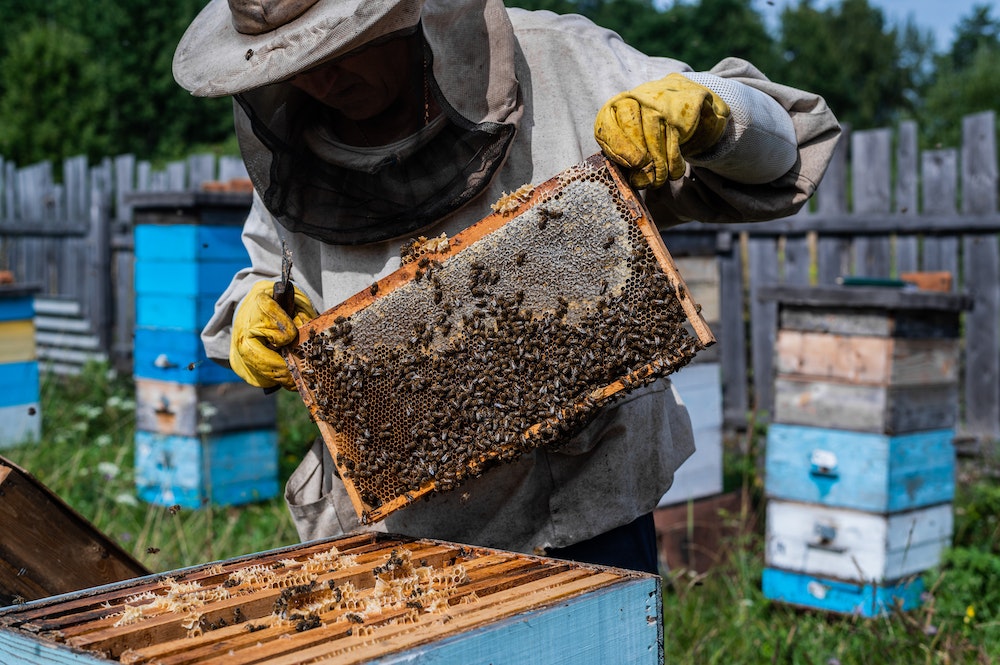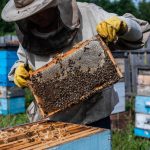In the intricate web of life, bees play a vital role as pollinators, helping plants to reproduce. Their diligent work ensures the survival of many plant species, contributing remarkably to the food chain and supporting biodiversity. However, in recent years, bees have suffered significant population declines, threatening the stability of ecosystems and food security. Amid this crisis, urban beekeeping has emerged as a promising strategy to help conserve the bee population and increase biodiversity in urban areas. This article delves into the subject of urban beekeeping in the UK and its potential to promote biodiversity.
The Importance of Bees in Biodiversity
Bees are among nature’s most industrious workers, playing a pivotal role in maintaining biodiversity. The process of pollination they perform is crucial for the reproduction of numerous plant species, including those that make up a significant portion of our diets. Without the pollination process, plants would struggle to reproduce and produce food, jeopardising biodiversity.
A lire en complément : What Are the Ethical Challenges of Using AI in UK Recruitment Processes?
Honey bees, in particular, contribute to pollinating a vast number of plants. However, it’s not only honey bees that are crucial for biodiversity. The UK is home to some 250 species of bees, including honey bees, bumblebees and solitary bees – each of these species plays a unique role in the ecosystem. Wild or native bees often pollinate different plant species than honey bees. They are also more efficient pollinators, making them a vital part of biodiversity.
The Decline of Bees and the Threat to Biodiversity
Sadly, bees are facing a sharp decline worldwide. This decline is due to various factors, including loss of habitat, climate change, exposure to pesticides, and the spread of diseases and parasites. The loss of bees can have dire consequences for biodiversity. When the population of bees decreases, the pollination process is disrupted, affecting the survival of plant species and, subsequently, the diversity of life they support.
A lire en complément : How to Use Green Roofs to Enhance Biodiversity in Urban UK Settings?
Urban areas, where concrete replaces natural habitats, pose a particular threat to bees. As cities expand, bees lose their natural environments, leading to a reduction in bee diversity, which in turn decreases plant diversity. Some scholars have argued that the urban sprawl is one of the most significant threats to bee population and biodiversity.
The Potential of Urban Beekeeping to Boost Biodiversity
Amid these concerning trends, urban beekeeping has emerged as a potential solution. By placing hives in urban areas, ranging from backyards to rooftops, beekeepers can provide a habitat for bees, helping to counteract the loss of natural areas. Urban beekeeping not only offers bees a place to live but also encourages the local planting of flowering plants, which bees need for food.
Urban areas can actually provide a great habitat for bees. With a diversity of plants flowering throughout the year, bees have a constant source of food. This is particularly beneficial for honey bees, which need a diverse diet to thrive. Moreover, urban beekeeping can help to increase the population of bees in cities, providing a much-needed boost to pollination and biodiversity.
Promoting Urban Beekeeping for Biodiversity
While urban beekeeping holds great potential, it’s important to approach it with care. Not all species of bees are suited to living in hives, so efforts must be made to support a variety of bee species. Furthermore, the success of urban beekeeping relies on a thriving local plant community. As a result, planting a wide range of native plants that flower at different times of the year can provide food for the bees and help increase biodiversity.
Urban beekeeping also needs the support of local communities and authorities. Some measures that could promote urban beekeeping include the lenient regulation of urban beekeeping and the provision of training and resources for urban beekeepers. Additionally, creating green spaces in urban areas that support a variety of flora and fauna can contribute to a thriving environment for urban beekeeping.
Ultimately, urban beekeeping can contribute significantly to promoting biodiversity in the UK. By providing a home for bees and increasing pollination, it can help to maintain a variety of plant species, supporting the overall web of life. As we continue to grapple with the threats facing bees and biodiversity, urban beekeeping presents a hopeful path forward.
Urban Beekeeping Practices for Bee Diversity
Urban beekeeping requires careful planning and implementation to ensure it benefits all bee species and not just honey bees. Different species of bees have different needs and habits. For example, solitary bees and bumblebees often nest in the ground or in small crevices, while honey bees live in larger colonies in hives. Therefore, urban beekeeping should aim to accommodate the needs of these different species.
A study published on Google Scholar emphasized the need to provide and maintain various types of habitats for different types of bees within cities. This includes keeping areas of bare ground for ground-nesting bees, maintaining a variety of flowering plants that bloom at different times of the year, and providing small cavities or bee hotels for solitary bees.
Furthermore, another article on PubMed suggested that reduced use of pesticides in urban areas could significantly help in preserving various bee species. Pesticides are known to harm bees, affecting their ability to reproduce and navigate, and damaging their immune systems, making them more susceptible to diseases and parasites.
Urban beekeeping also requires considerable knowledge and skills. As such, the provision of training and resources for urban beekeepers is crucial. A PMC free article outlined various training programs that could equip aspiring urban beekeepers with the necessary knowledge on how to care for bees, manage hives, and understand bee behaviour.
Urban beekeeping also requires the support of local authorities and communities. A study found on CrossRef Google revealed that regulations that allow and encourage urban beekeeping, combined with public education about the benefits of bees, can significantly promote urban beekeeping.
Conclusion: The Role of Urban Beekeeping in Sustaining Biodiversity
The ever-expanding urban areas pose a significant threat to wild bees and honey bees alike, jeopardising biodiversity. However, with careful planning and implementation, urban beekeeping can offer a lifeline to these essential pollinators. By providing diverse habitats and a continuous food supply through varied flowering plants, cities can become a haven for bees.
The support of local communities and flexible regulations are also paramount in promoting urban beekeeping. When the public understands the crucial role of bees in pollination and the production of food, they are more likely to support urban beekeeping initiatives. Training programs and resources also empower individuals to become urban beekeepers, ensuring bees are properly cared for.
As this article has shown, urban beekeeping is not merely about increasing the number of bees in cities. It is about creating an environment where various species of bees can thrive, thereby boosting plant diversity and overall biodiversity.
On the final note, the benefits of urban beekeeping extend beyond biodiversity. Bees in urban areas can improve mental wellbeing by providing opportunities for urban dwellers to connect with nature. They can also contribute to local economies through the production of honey and other bee products.
The decline of bee populations is a grave concern that requires urgent action. Urban beekeeping, if properly implemented, offers a promising solution that can contribute significantly to sustaining biodiversity in the UK. Therefore, it is our collective responsibility to support such initiatives, for the survival of bees, for the preservation of biodiversity, and for our own survival.
















